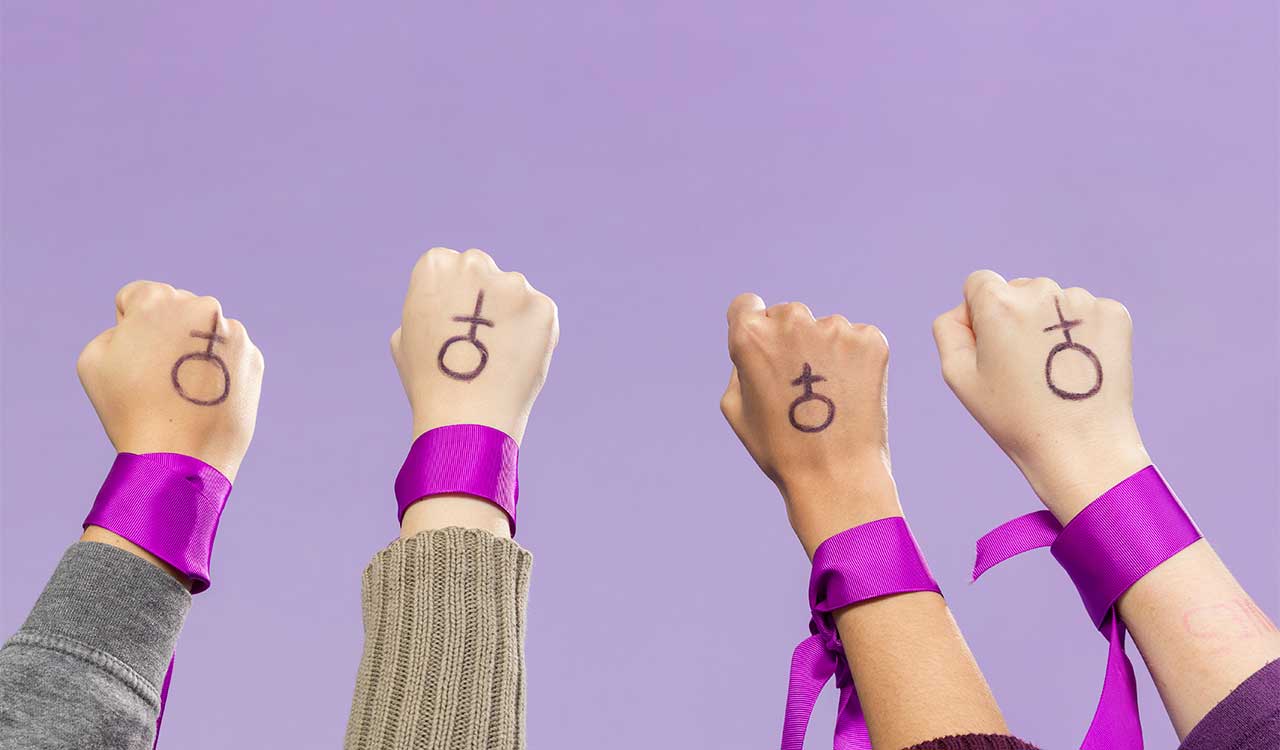Opinion: Feminism misunderstood
We must move beyond outdated notions of gendered power and recognise that feminism’s success lies in its inclusivity

By Dr Areeba Ahsanat Moazzam, Dr Rohin Gaddam
In recent decades, feminism has emerged as a global movement challenging long-standing structures of gender inequality. However, misconceptions about its goals have fueled fears that feminism seeks to replace patriarchy with a reversed power structure — one where women might hold dominance over men. This misunderstanding risks undermining feminism’s true mission: the creation of a society that values and empowers all people, regardless of gender.
Also Read
Feminism, at its core, does not aim to perpetuate oppression but to eradicate it, promoting an equitable society in which both men and women collaborate to shape a brighter future.
Historically, patriarchy has limited access to resources, roles and influence for half of humanity. Feminists argue that this imbalance has not only denied women opportunities but has stunted the collective progress of society. A truly just society envisions both genders having fair and equal opportunities and responsibilities across sectors — whether in corporations, government, NGOs or international bodies. The goal of feminism, therefore, is not to replicate patriarchy by inverting it but to dismantle its unjust practices and create an inclusive social fabric that benefits everyone.
Plato on Feminism
Remarkably, one of the earliest advocates for gender equality in education and opportunity was the Greek philosopher Plato. In his seminal work, The Republic, Plato envisioned an ideal society where both men and women could serve as “guardians” of the state. He argued that women, given the same education and training as men, were equally capable of fulfilling roles in leadership, governance and defence.
Philosopher Simone de Beauvoir, in The Second Sex, cautioned against reducing feminism to mimicry of patriarchy as it would only perpetuate cycles of inequality
Plato’s ideas were radical for his time, as ancient Greek society was deeply patriarchal. “If women are to do the same work as men, we must teach them the same things,” he famously stated. Plato’s emphasis on equal education and access to roles of influence highlighted an early recognition of the need for shared responsibility in shaping society — a view consistent with the core principles of feminism.
Plato’s vision of a society where men and women contribute equally to communal life is foundational to the idea that the pursuit of justice requires the dismantling of gender barriers. His thoughts, though situated within his model of philosophical communism, underscored that human potential is not defined by gender but by the quality of education and training one receives. This belief set the stage for later debates on equality and remains influential in discussions about educational reform and gender parity.
Roots of Feminism: Justice, Not Power
Feminism’s early pioneers did not seek to invert the power dynamic but rather to create a system that supports individual potential. Thinkers like Mary Wollstonecraft, often called the mother of feminism, advocated for women’s education and intellectual freedom. She argued that denying women access to knowledge and influence in society not only oppressed them but also weakened society as a whole. Wollstonecraft’s ideas of the late 18th century centred on creating a society based on reason, justice and equality — values that benefit all, not just women.
Similarly, political philosophers such as John Stuart Mill underscored the importance of equality. Mill, who co-authored The Subjection of Women with his wife Harriet Taylor Mill, argued that a society that restricts the freedoms of any group limits its own development. Mill’s insights remind us that gender equality is not about domination but unleashing the full potential of all citizens. A society that taps into the diverse experiences and perspectives of both men and women is better equipped to solve complex problems and foster a just environment for everyone.
Lessons from Popular Culture
A recent cultural phenomenon that has sparked debate is the Barbie movie. While the film was celebrated by some for addressing gender dynamics and critiquing patriarchy, it has also faced criticism for its portrayal of feminism. Detractors argue that the movie simplifies complex gender issues, presenting a world where female empowerment seems to come at the expense of male roles.
Critics claim that the film leans into a portrayal of women thriving only after men are diminished, creating an impression of a “reverse patriarchy” rather than fostering a vision of mutual empowerment. Such depictions risk reinforcing stereotypes about feminism, painting it as adversarial rather than collaborative.
Equality Benefits All
A central goal of feminism is to ensure that men and women have equal access to resources, decision-making roles and growth opportunities. This benefits not only women but also men, as it alleviates the pressures created by restrictive gender norms. In a society free from the dictates of patriarchy, men would be able to fully embrace emotional expression, parental roles and a wider range of career paths without societal stigma. Feminism advocates for the right of each individual to pursue their goals and contribute meaningfully to society without being confined to traditional roles.
An inclusive approach to leadership is crucial. Research shows that gender-diverse teams are more innovative, make better decisions and increase organisational resilience. When both men and women bring their perspectives to the table, the range of solutions expands. As philosopher Simone de Beauvoir emphasised, “Society has always been male; political power has always been in the hands of men.” Feminism seeks to change this paradigm by ensuring that the fate of humanity is shaped by both genders collaboratively.
Just Society Together
Feminism champions a world where men and women contribute equally to decision-making processes, policies are shaped by diverse voices and every individual has the opportunity to fulfil their potential.
To realise this vision, we must move beyond outdated notions of gendered power and recognise that feminism’s success lies in its inclusivity. Men and women must work together to dismantle societal barriers that harm everyone, from gender stereotypes to unjust power structures.
As Wollstonecraft argued, and Mill emphasised, the path to a just society lies not in shifting the scales of oppression but in breaking them entirely. Gender equality is about building a world in which humanity’s full potential is realised. It is about nurturing a society that values compassion, fairness and shared responsibility — qualities that, in the end, strengthen the fabric of society and propel us toward a more harmonious future.
Philosopher Simone de Beauvoir, in The Second Sex, cautioned against reducing feminism to mimicry of patriarchy as this would only perpetuate cycles of inequality. Instead, feminism must break free from such binaries, fostering equity and mutual respect.
A future shaped by both men and women, working in harmony, is not just fair but essential for the survival and flourishing of society. By supporting one another’s growth and celebrating diversity, we can build a world that reflects the best of humanity — a world where justice, cooperation, and shared purpose ensure a better tomorrow for all. This vision of feminism offers not domination but partnership, creating a legacy of progress and unity for generations to come.

(Dr Areeba Ahsanat Moazzam and Dr Rohin Gaddam are Assistant Professors at the School of Liberal Arts and Humanities, Woxsen University, Hyderabad)
Related News
-
Madhusudhan Linga wins singles title at Abu Dhabi Masters Games
8 seconds ago -
Hyderabad beat Saurashtra by three wickets in women’s one-day tie
4 mins ago -
Chiranjeevi marks Surekha’s birthday ahead of wedding anniversary
20 mins ago -
Woman IT professional allegedly murdered by former husband in Vanasthalipuram
31 mins ago -
Panic in Sircilla villages after tiger kills four cattle
33 mins ago -
DLTA felicitates Indian Davis Cup team after win over Netherlands
39 mins ago -
Rakul Preet Singh shares fun BTS moments from chilly outdoor shoot
51 mins ago -
Arrival time of Secunderabad–Visakhapatnam Vande Bharat revised
1 hour ago




